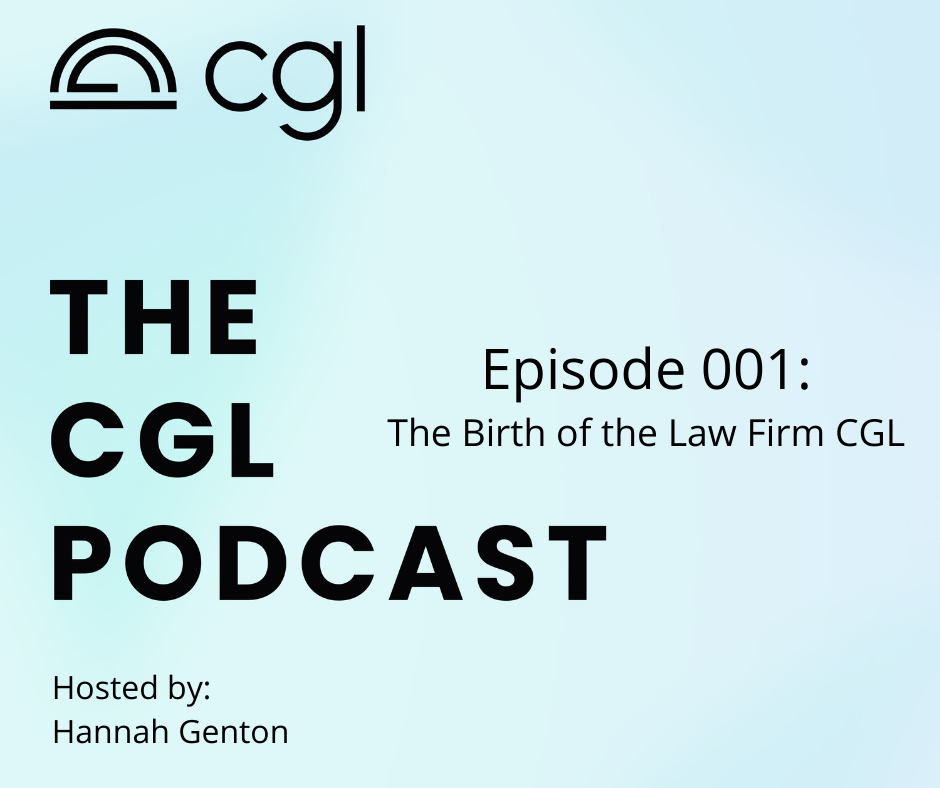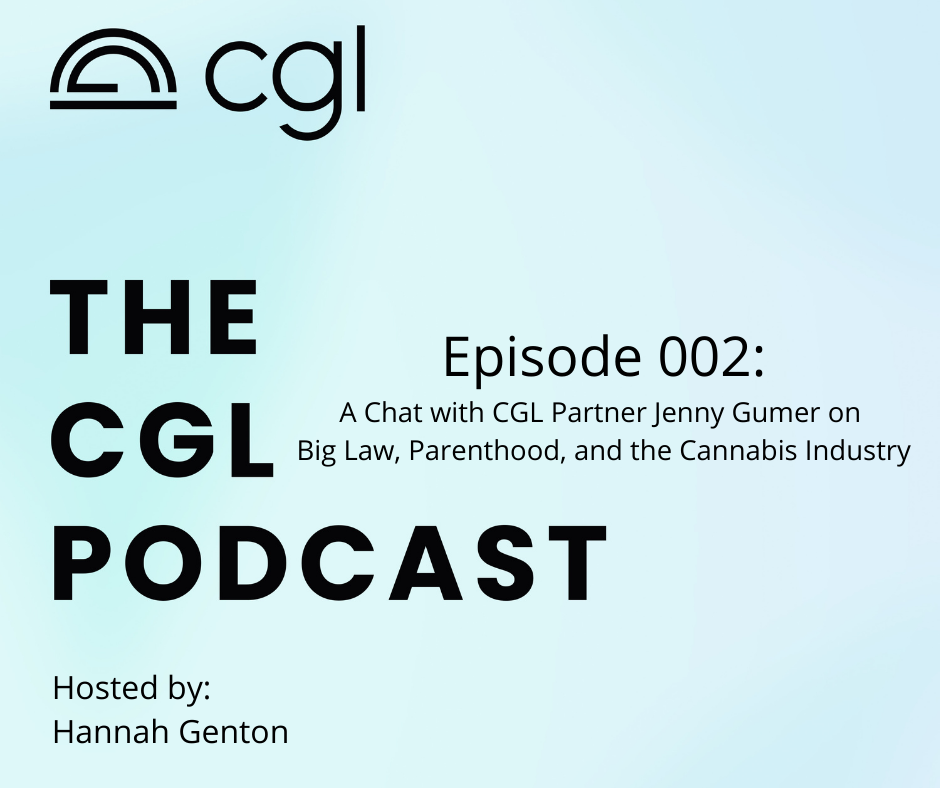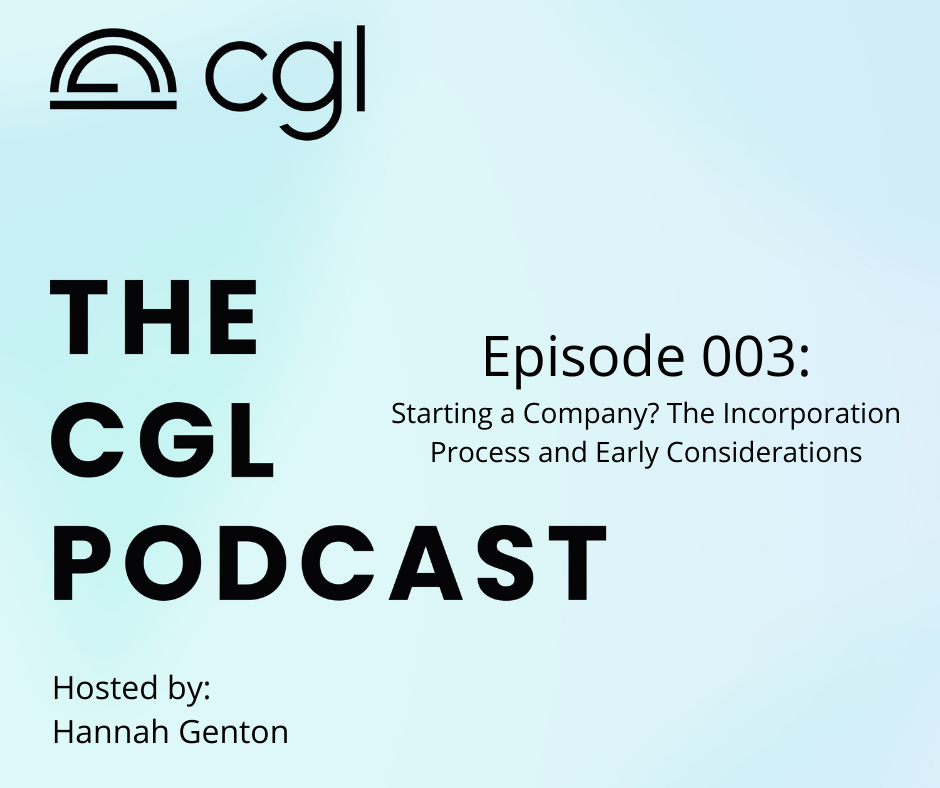As founders begin to grow their businesses, they need to protect the company’s confidential information. Non-disclosure agreements, or NDAs, are a tool for this. These agreements are critical when building partnerships, exploring new business avenues, and scaling a company. They may not be at the top of your to-do list, but they are helpful for avoiding unnecessary pitfalls as you grow.
In this episode, we are doing a Q and A on NDAs. We are answering many of the recurring questions we receive around this topic. Listen in for some insight into NDAs.
In this episode, you will hear:
- What NDAs are.
- Why every company should use them.
- When you should ask someone to sign an NDA.
- How much information you should share with investors.
- What is considered confidential information.
- What should be covered in an NDA.
Subscribe and Review
Have you subscribed to our podcast? We’d love for you to subscribe if you haven’t yet. Each week, we share authentic discussions with business leaders where they flesh out substantive issues while also getting deeper into their stories. We’ll dive into conversations on the fusion of business and humanity, success and authenticity, and the challenges of balancing life and work, in addition to regularly sharing legal updates and substantive content.
We’d love it even more if you could drop a review or 5-star rating over on Apple Podcasts. Simply select “Ratings and Reviews” and “Write a Review” then a quick line with your favorite part of the episode. It only takes a second and it helps spread the word about the podcast.
If you really enjoyed this episode, we’ve created a PDF that has all of the key information for you from the episode. Just fill in your information below to download it.
Supporting Resources:
Email us for further help: info@cgl-llp.com
Transcript from Episode 17:
SUMMARY KEYWORDS
nda, confidential information, company, information, party, business, signing, share, typically, protecting, investor, breach, important, founders, confidentiality, build, confidential, define, talking, disclose
00:02
I’m your host Hannah. I’m Tom, and I’m one of the founding partners of CGL. What if you could speak with top business leaders and CEOs about their professional insights and personal journeys? Each week, we share authentic discussions with business leaders, where they flesh out substantive issues while also getting deeper into their authentic stories. Our goal is to bring you conversations on the fusion of business and humanity, success and authenticity, and the challenges of balancing life and work. Thank you for joining us. Hello, hello, and welcome to another episode of conversations with CGL. I am your host, Hannah Genton. And today, I am going into a question and answer episode regarding NDA. So you’ve probably heard of an NDA. We get lots of questions about them here at CGL. And I thought that it would be helpful for us to share kind of some of those recurring questions and answers here. And these are a topic I think, that are really important for founders as they begin to grow and build partnerships and explore new business avenues. So that’s why we wanted to dive into this topic today. So first question that we get a lot is what is an NDA? And why should a company want to use one? So an NDA is really a useful tool for protecting your company’s confidential information. So it’s a legally binding agreement between the parties not to disclose proprietary or confidential information to other people. So typically, most NDAs are unilateral, meaning that one person usually the outside individual or employee agrees not to reveal confidential information about the business. But in some cases, a mutual NDA is more appropriate when both parties are sharing sensitive information with each other. For example, say two companies are working together on developing a product and they’re sharing, you know, proprietary information with each other that is necessary to develop that product. That’s a good time where a mutual NDA would likely be most appropriate. So startups really should consider entering into NDA before talking to potential partners, investors, clients, suppliers, contractors, after spending so much time and money and other resources building on the vision, the last thing a company wants is for someone else to copy that idea or disclose that publicly before the time is right. Many of our founders understand the importance of timing. And so this is a really crucial legal document that can protect you in that instance. So signing an NDA also really sets the tone of the relationship and creates an understanding that the company does indeed prioritize confidentiality. Okay, so that’s great. That’s a little bit of background on what an NDA is. What are some examples of when a company would ask someone to sign an NDA? As a general rule of thumb, a company should execute an NDA anytime before sharing information that it say wouldn’t want another party to use or disclose to the public. So I’ll go into more details. But some common situations that would require an NDA include hiring contractors, fundraising, working with manufacturers, and say negotiating to sell the company, it’s really important to sign an NDA when engaging contractors, especially these contractors who will gain access to confidential information like company client lists, advertising strategies, source codes, or other sensitive data on your company. Even full-time employees may be asked to sign an NDA, especially when working on projects that are not yet public. This is notable because even if a company has patents and trademarks, there may be other details that make the business valuable and unique. It’s a bit more complex, though when seeking funding. So while startups may fear that potential investors will steal their great ideas or share them with competing entrepreneurs, in many cases, theoretically assigned to NDA could help ensure that a company’s business plan doesn’t get floated within the investor community that said, most venture capital firms will not agree to sign an NDA in early stages of negotiations. So they’re flooded. If you think of the perspective from a venture capital firm. I mean, they’re flooded with requests for pitches to hear innovators and similar kind of spaces on a daily basis. And it just isn’t kind of culturally the practice as well. This is the business that investors are in. And so that’s kind of a trust-based relationship as well that founders take but you know, typically the best approach for a company is to remove any super-sensitive information from those initial presentations and divulge the details and a later meeting maybe when investment becomes more likely when you’ve built a better relationship with the investor. So while we’re talking about the importance of NDAs, we don’t typically advise clients to request them with your like standard venture capital investor, because that’s just not common practice. But finally, a company entering though into a buyout or an acquisition offer should definitely have an NDA in place, especially before sending financial data or operations information to the potential buyers. So what else could be considered confidential information? This question we hear a lot. So confidential information can include like manufacturing processes, business strategies, marketing, schemes, formulas, financials, or any specific item that sets the company apart from another so well-known information or information that the company openly shares with the public. That’s not considered confidential. But this is a great question, because one of the most important parts of an NDA is defining the confidential information. So I think that segues into another recurring question that we get, and that’s what specifically needs to be addressed in the NDA. So as mentioned before, the NDA should cover the nature of the confidential information, how the information might be used, and the duration of the confidentiality obligations. So first, it’s important to explicitly define confidential information. So what exactly is the company protecting, so be specific, the NDA is not going to shield any information that’s not outlined in the agreement. So it’s really important that you’re specific in this part. So companies want to make sure that the scope of the confidential information won’t seem overwhelming or unreasonable to the signing party. But at the same time, it’s necessary to define what’s not confidential. So for example, information that the signing party knew before executing the NDA, or that the signing party learns from a third party, that type of information will not be protected. So next, the NDA should really clearly identify responsibilities regarding the confidential information. So this is things like who can be shared with will the signing parties employees have access to the data? What purposes can the information be used for? What steps should the signing party take to make sure that the information remains confidential. So I’m really important to define these responsibilities. It’s also essential to specify a reasonable time period for the confidentiality obligations. Typically, NDA’s last between four and five years, though some information may need to be protected indefinitely. So that’s, you know, kind of determined typically on a case by case basis last, the NDA may also determine the process for dispute resolution and spell out the legal recourses in case a party breaches the agreement. So everybody’s aware of what their obligations are, what their responsibilities are, what the confidential information is that we’re talking about what’s not confidential information, and what happens if somebody breaches. So let’s go into that a little bit. So we have certainly seen situations where parties have breached the NDA and what happens what happens in that scenario, so there is always a chance that a person violates the NDA for example, using that confidential information to develop a similar business or exposing confidential information to outside parties. In almost all cases, the party who is affected will be able to pursue monetary damages for breach of contract. Other legal recourses may include copyright infringement trade secret misappropriation, and other various IP violations. But I will point out that it can be very expensive to enforce an NDA in court, even so there would be reputational harm to someone who either intentionally or even recklessly divulged confidential information. You know, you can imagine the reputational damage that could happen from somebody choosing to breach an NDA. So kind of In summary, I think I just want to highlight that NDA may not be at the top of a company’s to-do list, but they can really help avoid unnecessary pitfalls when growing a business. So the good news is that once a company drafts a thorough NDA, it can be used as a template for future dealings. And when you’re talking about protecting your hard-worked for or build kind of confidential information, this can certainly be a worthwhile investment. So hopefully that is helpful and gives you a little bit more insight into the NDA. Again, there are many specific scenarios that can affect your company. We work on these all the time, and we’d be happy to chat with anyone that had any additional questions. You’re welcome to email us at info at CGL dash LLP calm. So thank you for joining me for today’s episode, and we look forward to speaking with you next time.
Disclaimer
The materials available at this website are for informational purposes only and not for the purpose of providing legal advice. You should contact your attorney to obtain advice with respect to any particular issue or problem. Use of and access to this website or any of the e-mail links contained within the site do not create an attorney-client relationship between CGL and the user or browser. The opinions expressed at or through this site are the opinions of the individual author and may not reflect the opinions of the firm or any individual attorney.



